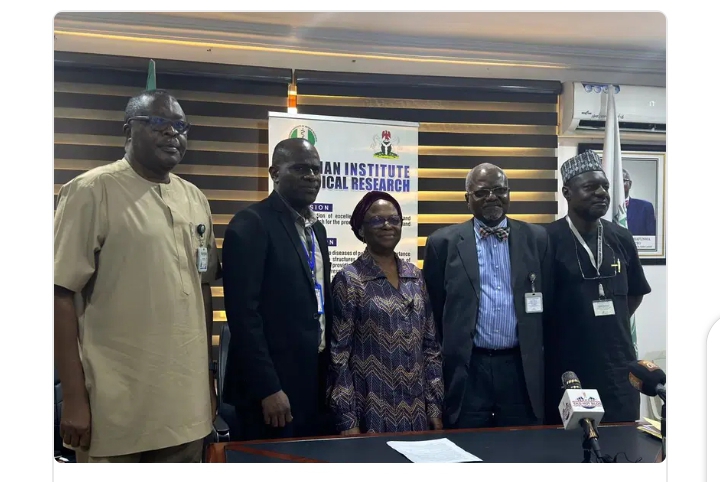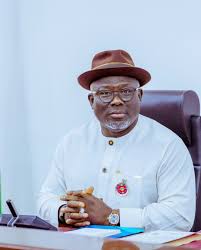The Nigerian Institute of Medical Research (NIMR) has faulted the Eko Electricity Distribution Company (EKEDC) over what it described as excessive and unexplained electricity charges amounting to over N89 million, a situation which has sparked fresh concerns about the sustainability of its critical research operations.
The institute’s management disclosed that between August and December 2024 alone, it was slammed with estimated electricity bills totaling N218 million—an amount the Director-General, Prof. John Obafunwa, termed “humongous” and “unjustifiable”, given the erratic power supply within the area.
This development comes amid an official disconnection notice issued by EKEDC, warning that power to the research facility would be cut off unless a payment of N62,447,261 is made by April 28, 2025. According to a memo from EKEDC’s Business Manager for the Ijora District, Mr. Sanyaolu Clement, the amount includes a current charge of N56,447,261 and an installment payment commitment of N6 million.
The document, titled “Final Notice of Disconnection” and referenced ‘Ref: 236/2305/DM/IJ/2404/2025’, was addressed to the NIMR Director-General and emphasized that failure to comply with the demand would lead to the “withdrawal of services” from the research institute.
In a media briefing held on Friday at the institute’s Yaba premises, Prof. Obafunwa expressed dismay over what he believes to be a deliberate attempt by EKEDC to undermine the institute’s operations. He highlighted that despite repeated requests, the institute has been denied the installation of prepaid meters and has instead been subjected to arbitrary estimated billing.
“We have made several formal requests for prepaid meters so we can properly monitor our electricity consumption. But we are constantly ignored. Instead, we are handed inflated estimated bills that do not reflect the reality of our energy usage,” he said.
Citing the staggering monthly bills, Obafunwa revealed that NIMR received a bill of nearly N49 million for August 2024, followed by N48 million in September, N44 million in October, and a sudden spike to N52 million in March 2025. He questioned how such figures were calculated, especially given the institute’s frequent experiences with power outages.
“To put this in perspective, the N89 million they are quoting includes N52 million for just the month of March. And in April, we received another N52 million bill, even though power supply has been very inconsistent,” he lamented.
The Director-General also raised concerns that the only noticeable reduction occurred once, when the bill dropped to about N34 million. However, it surged back up in subsequent months without any logical explanation. He further accused EKEDC officials of being evasive and unresponsive to attempts at dialogue and reconciliation, noting that several official letters sent to the power company went unanswered.
“In fact, after paying over N34 million just today to show our commitment to dialogue and resolution, EKEDC responded not with cooperation, but with a fresh disconnection notice. I find this deeply troubling,” he said.
Prof. Obafunwa noted that EKEDC’s refusal to install a verifiable meter at the institute has only added to the opacity of the billing process. “We are being billed based on a meter reportedly located at their Jibowu office. How do you bill an institution based on a meter in your backyard? It’s unacceptable,” he added.
Beyond the financial burden, the NIMR boss warned that cutting off power to the institute would severely jeopardize ongoing research efforts, damage temperature-sensitive samples, and stall crucial laboratory work. He urged EKEDC to consider the institute’s national importance and refrain from actions that could undermine public health research.
The situation is further compounded by NIMR’s exclusion from a 50 percent electricity subsidy policy granted to tertiary institutions and government-owned hospitals. According to Prof. Obafunwa, efforts to get the Federal Government to extend the subsidy to NIMR have so far yielded no results.
“I had discussions with the former Minister of State for Health, Dr. Tunji Alausa, asking that the subsidy granted to universities and teaching hospitals be extended to NIMR. After all, we are a key research institution whose work supports those same hospitals and academic institutions,” he noted.
In his final remarks, the NIMR Director-General called for urgent intervention from relevant authorities, emphasizing that the continued imposition of unjustified bills, lack of transparent metering, and the threat of disconnection could cripple the country’s leading medical research facility.
“This is a research institute, not a commercial entity. Our work is critical to national health and security. It is disturbing that anyone would think we have unlimited funds just because we’re a government agency. It simply doesn’t add up,” he concluded.


